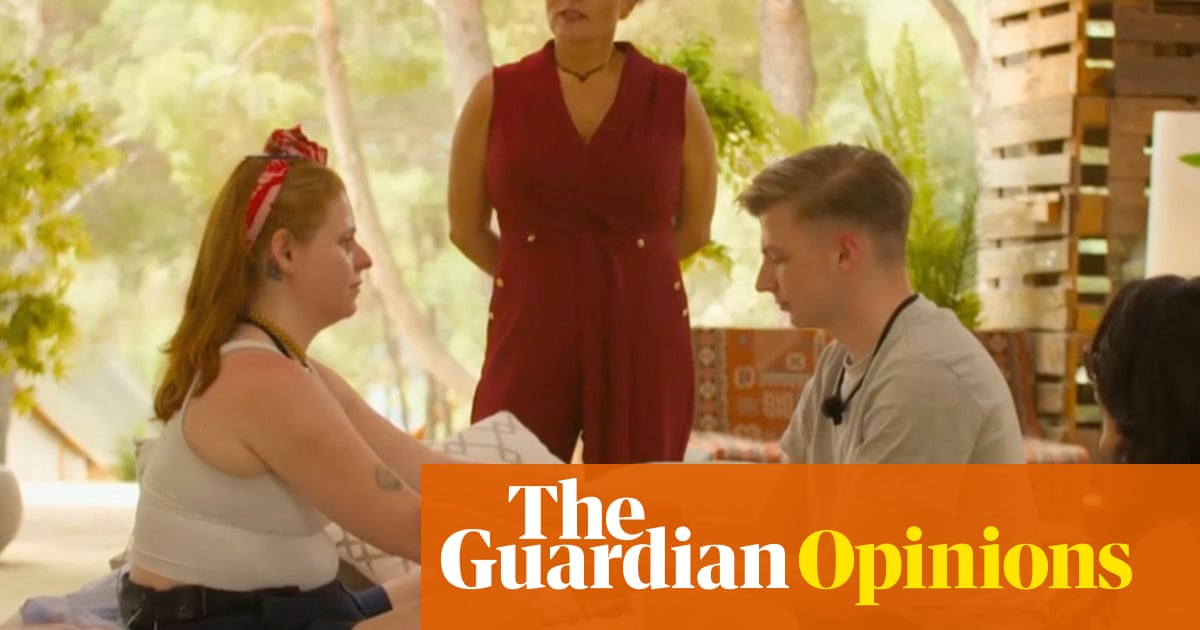Channel 4's 'Virgin Island': A Provocative Exploration of Sexuality or Just Televised Humiliation?











2025-05-28T16:45:00Z

Channel 4’s latest venture, entitled Virgin Island, recently wrapped up its run, leaving viewers with a mix of intrigue and discomfort. This show attempted to straddle the fine line between entertainment and a rather peculiar form of public therapy, featuring twelve individuals branded as “courageous virgins.” Set against a picturesque backdrop reminiscent of the musical Mamma Mia!, the contestants were placed in the care of a cadre of self-proclaimed experts. These included professionals with titles such as “emotional intimacy coach,” “surrogate partner therapist,” and “sexological bodyworker.” Their mission? To help the contestants tackle both physical and emotional hurdles surrounding their virginity through a series of unconventional methods, resembling a therapy session that many would consider a nightmare.
Having spent an entire weekend binge-watching the series, it’s hard to deny that it delivered some surprisingly compelling television. From instructional segments on oral sex to playful animal role-play, the show had a bizarre charm, resembling a sun-soaked gameshow sprinkled with awkward moments and comedic misfires. Despite the eccentricity, the finale revealed that only one contestant had shed their virgin status, raising the absurd possibility of a comical prize for their achievement—imagine winning a Nissan Micra for a sexual conquest!
Isolated from the constraints of everyday life and burdened primarily by their own psychological issues, the participants were offered what was presented as an idyllic escape. Yet, this very fantasy construct also became a significant flaw in the show’s premise. Reducing the complexities of human sexuality to a series of scripted acts—such as rehearsing “smooth transitions” between sexual positions or choreographing the moment to kiss a partner's hand—failed to recognize that sexual experiences are not solely physical endeavors. They are deeply intertwined with social dynamics, rife with unpredictability, rejection, and power struggles.
Notably, the show often showcased unsettling social dynamics. Contestant Charlotte openly expressed her desire to overcome feelings of shame, yet she seemed unbothered by the embarrassment of others. She was particularly scathing about the “horrible stretch marks” on fellow contestant Ben, demonstrating a paradoxical relationship with vulnerability and body image in the realm of sexuality. Meanwhile, Emma, a 23-year-old feeling anxious and exposed, was paired with Thomas, an older “sexological bodyworker.” The pairing, rife with discomfort, raised questions about the effectiveness of such an arrangement in fostering Emma's sexual confidence.
Among the cast, Zac emerged as the show's self-proclaimed antagonist. In one memorable scene, he dispensed a range of superficial compliments to the women, seemingly ranking them based on his arbitrary standards of attractiveness. This behavior, while perhaps intended as light-hearted, showcased a troubling aspect of male entitlement and objectification that the show largely glossed over. Zac’s apparent impatience with the program’s structure, which required gradual progression through various sexual acts, only served to highlight his lack of self-awareness. His suggestion that a fellow participant might be intimidated by him drew attention to the underlying power dynamics at play, yet the show did little to critically engage with these behaviors.
Sexual desire is inherently complex, often influenced by a multitude of factors that cannot be neatly unraveled within the confines of six episodes. Acknowledging the interplay between personal experiences in the bedroom and broader social interactions could have added significant depth to the narrative. However, in true neoliberal fashion, Virgin Island encouraged contestants to focus solely on their internal struggles, missing the opportunity to explore their relationships with one another.
A stark gender divide became apparent, as many female participants appeared visibly intimidated by their male counterparts. This dynamic was only exacerbated by a controversial practice session where participants were instructed to perform aggressive moves, such as pushing their partners against a wall—a scenario that raises important questions about consent and the emotional implications of such actions. What did this teaching method reveal about societal norms surrounding masculinity and sexuality?
Sex, as the show revealed, is inextricably linked to power dynamics. From childhood traumas to fantasies of dominance, the contestants’ experiences were rich with implications. Yet, Virgin Island opted to sidestep any serious discourse about power, perhaps to avoid confronting the uncomfortable realities of the interactions between the trained professionals and the vulnerable individuals they were aiding. In doing so, the series inadvertently boxed itself into a corner of denial, simplifying the multifaceted nature of sexuality to mere mechanics. By treating sex as solely a bedroom issue, the series ultimately felt bland and unoriginal, leaving viewers yearning for a more nuanced exploration.
 Angela Thompson
Angela Thompson
Source of the news: The Guardian